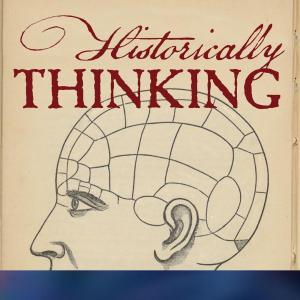Historically Thinking

Episode 234: The Fall of Robespierre
“We seek an order of things in which all the base and cruel passions are enchained, all the beneficent and generous passions are awakened by the laws; where ambition becomes the desire to merit glory and to serve our country; where distinctions are born only of equality itself; where the citizen is subject to the magistrate, the magistrate to the people, and the people to justice; where our country assures the well-being of each individual, and where each individual proudly enjoys our country's prosperity and glory…” These are the words of Maximilien Robespierre, delivered on 5 February 1794. It all sounds very good, if you’re not a monarchist. Yet later in this speech, sometimes labeled “On Political Virtue”, Robespierre also makes his clearest call for terror as the means with which to save the future of the republic from the enemies within as well as those without. In the end, he would himself be identified as one of those internal enemies, and be himself eliminated. This is the subject of Colin Jones’ new book The Fall of Robespierre: 24 hours in Revolutionary France. It is an hour by hour, sometimes minute by minute chronicle of Robespierre’s last full day. But it is also more than that. It is a day in the life of the French Revolution, in which not only Robespierre crosses the stage, but journalists, the public executioner, shopkeepers, laborers, and all the faces of the crowd. Colin Jones is Professor of History at Queen Mary University of London, a fellow of the British Academy, past president of the Royal Historical Society, and currently visiting professor at the University of Chicago. Among his previous books is The Smile Revolution: In Eighteenth-Century Paris; yes, even smiles have a history.






 Visit Podcast Website
Visit Podcast Website RSS Podcast Feed
RSS Podcast Feed Subscribe
Subscribe
 Add to MyCast
Add to MyCast